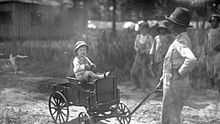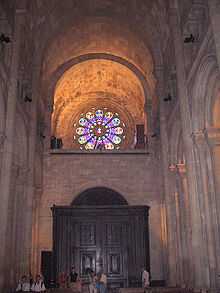Anyway, where can we spot one? Most of us won't often see a four-wheeled horse-drawn vehicle for carrying crops or goods:

(that wagon is Australian, by the way. If it were English it wouldn't be a wagon at all, but a cart, because an English wagon doesn't have a hard top.)
Luckily there are other sorts of wagon about. In Britain any railway truck carrying freight is a wagon.
North America has a long history of wagons carrying people, but nowadays a wagon might be a cart in which children play:

a station wagon (which I'd call a estate):

or it could be a police vehicle for transporting people who have been arrested.
In Europe you might travel in a sleeping carriage or wagon-lit, and almost anywhere in the world you may come across the lengthened tunnel-like arch that's a wagon vault:

(This wagon vault is in Lisbon Cathedral.)
There will also be plenty of people about who are either on the wagon (that is, have given up drinking alcohol) or have fallen off it (have taken up drinking alcohol again) though sadly in both these cases the wagon is invisible.
Spot the Frippet: wagon. This word came from The Netherlands in the 1500s. The Dutch form was wagen.
No comments:
Post a Comment
All comments are very welcome, but please make them suitable for The Word Den's family audience.